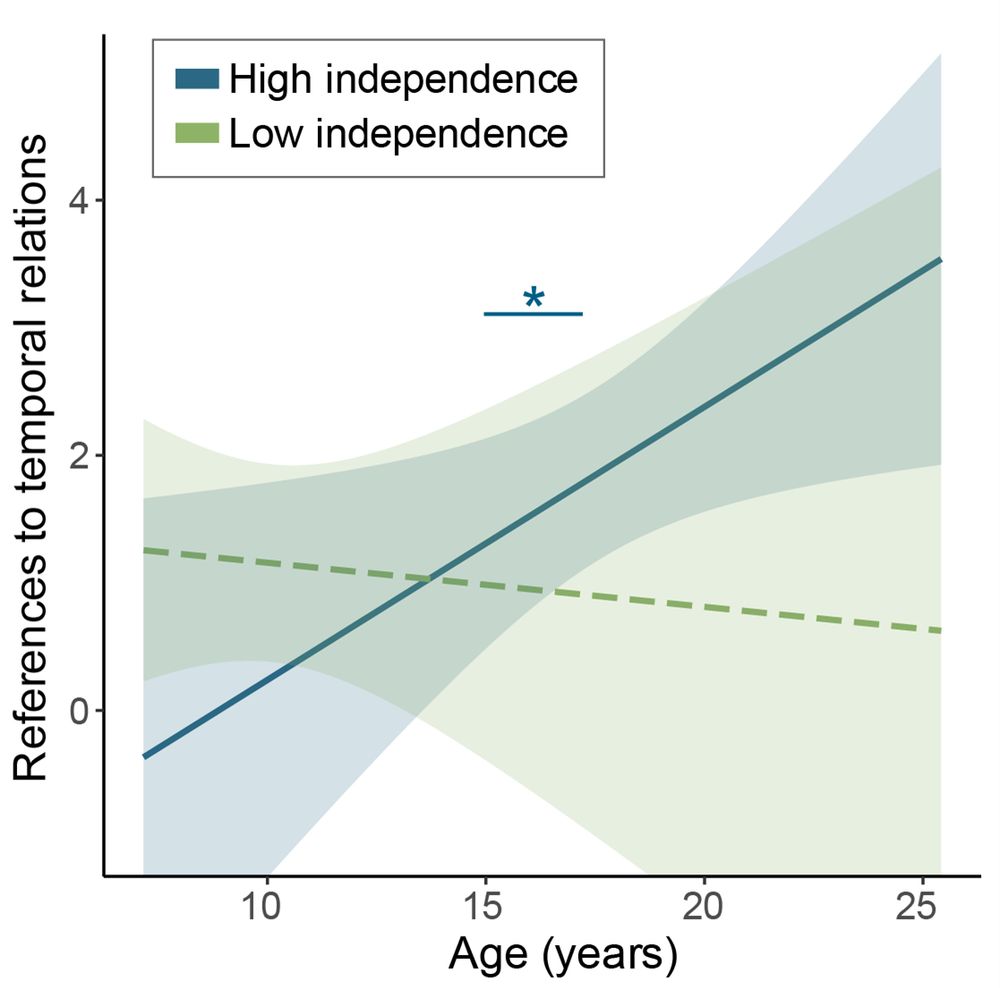
I study how children, adolescents, and adults learn and reason about the world
preston.clm.utexas.edu
Beyond age, independence predicts how individuals talk about their lived experience.
Children & teens who manage time more independently (getting themselves up, having their own get-ready routine) use more sophisticated time language when recalling their daily experiences.

Beyond age, independence predicts how individuals talk about their lived experience.
Children & teens who manage time more independently (getting themselves up, having their own get-ready routine) use more sophisticated time language when recalling their daily experiences.
When asked to describe a typical day in their lives, younger children mostly describe the order of events, using words like “then” & “before.”
Older children & teens talk less about order & instead describe their experiences in terms of schedules & routines.

When asked to describe a typical day in their lives, younger children mostly describe the order of events, using words like “then” & “before.”
Older children & teens talk less about order & instead describe their experiences in terms of schedules & routines.
Encouraging children & teens to manage their schedules independently has positive impacts for their memory!
Our new study reveals that age & independence combine to enhance memory development 🧵
Read here: osf.io/preprints/ps...

Encouraging children & teens to manage their schedules independently has positive impacts for their memory!
Our new study reveals that age & independence combine to enhance memory development 🧵
Read here: osf.io/preprints/ps...
We'll discuss how kids & adults remember when things happen, how memory changes impact reasoning & how we learn different actions have different consequences based on the setting.
Find us Monday & Wednesday 🤘

Young children (ages 4-9) remember events like separate snapshots in isolation 🖼️🖼️
Teenagers begin to recognize patterns but struggle to apply them flexibly 🖼️🤔🖼️
It's not until early adulthood that the brain can access both specific details AND general patterns as needed.

Young children (ages 4-9) remember events like separate snapshots in isolation 🖼️🖼️
Teenagers begin to recognize patterns but struggle to apply them flexibly 🖼️🤔🖼️
It's not until early adulthood that the brain can access both specific details AND general patterns as needed.
When children are witnesses, we ask detailed questions about when events occurred. But if we don't understand HOW kids remember time at different ages, we might misjudge their credibility when they're actually doing the best their developing brains allow.
So how is WHEN different for kids?

When children are witnesses, we ask detailed questions about when events occurred. But if we don't understand HOW kids remember time at different ages, we might misjudge their credibility when they're actually doing the best their developing brains allow.
So how is WHEN different for kids?
🧠 Did you know that kids remember time differently than adults? Our new preprint review w/ @drjeni-mdlab.bsky.social discusses the real implications for juvenile justice & why we need to ask about timing in ways that match kids' developing brains ⚖️
Paper: osf.io/preprints/ps...

🧠 Did you know that kids remember time differently than adults? Our new preprint review w/ @drjeni-mdlab.bsky.social discusses the real implications for juvenile justice & why we need to ask about timing in ways that match kids' developing brains ⚖️
Paper: osf.io/preprints/ps...

We love connecting with families and future scientists while sharing what we do at the Preston Lab 🤘
#SciComm #AustinScience

We love connecting with families and future scientists while sharing what we do at the Preston Lab 🤘
#SciComm #AustinScience


